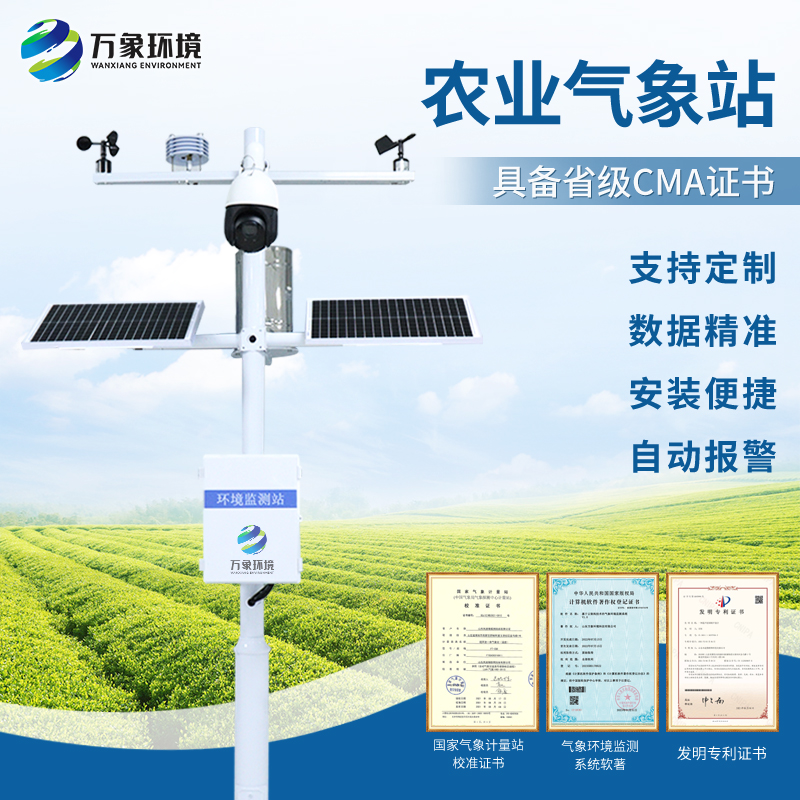The construction of high-standard farmland has become a key part of improving crop yield and quality. The farmland microclimate observation system, as the effective assistant of high-standard farmland meteorological monitoring, is providing scientific and accurate data support for agricultural production with its high-precision, intelligent and all-weather monitoring characteristics. Today, let's go into the field microclimate observation system and understand how it helps the construction of high standard farmland.
WX-NY12 Field microclimate observation system is a highly integrated, low power consumption, fast installation and easy to use field monitoring of high-precision meteorological observation equipment. It is mainly responsible for monitoring various meteorological parameters in farmland, including but not limited to temperature, humidity, light intensity, wind speed, wind direction, rainfall, atmospheric pressure and soil temperature and humidity. These sensors are like the "eyes" of the farmland, which can capture changes in the farmland microenvironment in real time and provide accurate data support for agricultural production.
The reason why high standard field meteorological monitoring needs field microclimate observation system is that it can realize 24 hours uninterrupted monitoring. This function is crucial for agricultural production, as it can help farmers to know the weather conditions inside the field in real time, so that they can take timely management measures, such as adjusting irrigation, fertilization, pest control, etc., to ensure the best growing environment for crops at different growth stages.
In addition to real-time monitoring, the farmland microclimate observation system also has the function of over-limit early warning. When the monitored data exceeds the preset threshold, the system will automatically send an early warning message to remind users to take timely measures to deal with potential climate risks. This function is like the "guardian" of farmland, which can effectively avoid the damage caused by extreme weather to crops and ensure the safety and stability of agricultural production.
In addition, the farmland microclimate observation system also has a powerful data analysis function. It can carry out statistical analysis of historical data to help users find the rules and trends of climate change. This will help farmers develop more scientific planting plans and management strategies, and improve the precision and efficiency of agricultural production. At the same time, these data can also provide strong support for scientific research, teaching, etc., to promote the progress and development of agricultural science and technology.

Article address:
http://www.qxhjjc.com/en/article/1347.html


















 Home
Home phone
phone Product Overview
Product Overview Contact Us
Contact Us